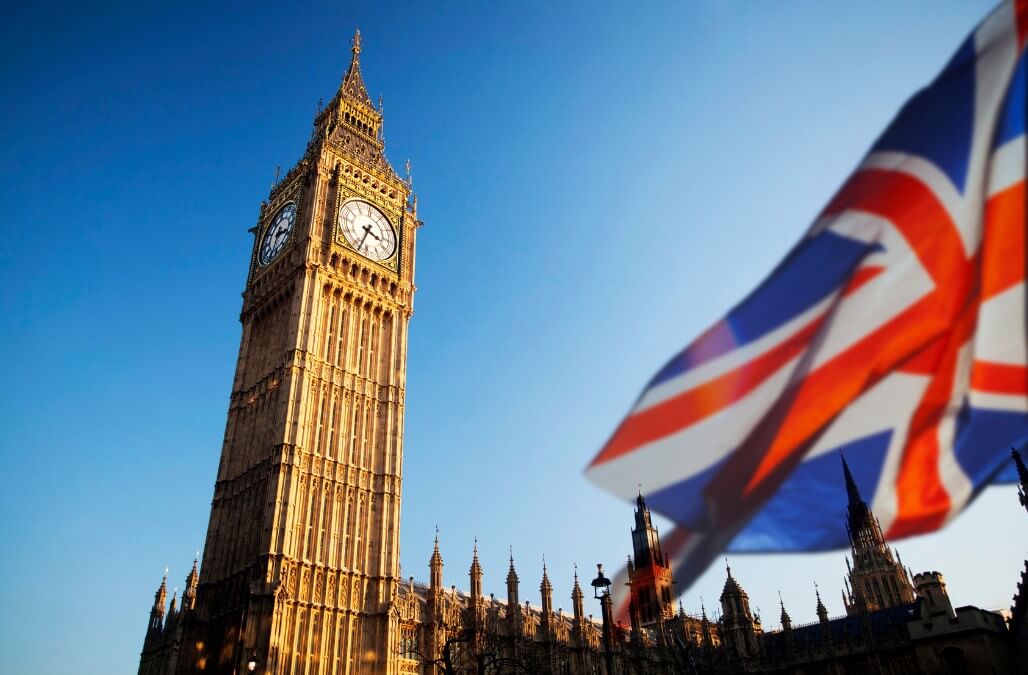The UK’s economy shrank more than anticipated in July, indicating a slowdown in activity amid tightening measures by the Bank of England (BoE). In response, the pound saw a 0.4% decline against the dollar, reaching $1.2449. Additionally, the euro gained 0.2% against the pound, approaching its highest level in a month at 86.27 pence. The data suggests ongoing economic volatility and highlights the sensitivity of currency markets to economic indicators.
UK economy sees more than expected contraction
In July, there was a 0.5% drop in the gross domestic output, as reported by the Office for National Statistics. This decline was larger than the 0.2% predicted by economists surveyed. The services sector saw a 0.5% decrease, partly due to strikes in the health sector. Additionally, manufacturing production decreased by 0.8%, and construction reported a decline.
This contraction follows a period of better-than-expected growth in the second quarter, mainly driven by a robust services sector. The dip in July indicates that the Bank of England’s decision to increase interest rates is starting to cool down the UK economy.
Paul Dales, the chief UK economist at Capital Economics, commented on the situation, saying that the decline in GDP in July suggests that underlying growth has lost momentum since earlier in the year. That would make sense given that the impact of higher interest rates should now be more pronounced, he added.
Earlier this week, unemployment figures revealed a slight increase in the UK jobless rate for the three months leading up to July. However, wage growth remained stable during the same period.
Darren Morgan, the director of economic statistics at the ONS, explained that in July, strikes by healthcare workers and teachers harmed services, and adverse weather conditions made it a tougher month for construction and retail. He also noted that manufacturing dipped after recovering from the impact of May’s additional Bank Holiday.
Bank of England interest rate decision incoming
The British economy, projected by the Bank of England to show little to no growth over the next couple of years, is now facing a slowdown due to a significant surge in borrowing costs. This development might make policymakers reconsider deciding whether to increase interest rates next week to control inflation.
The BOE will convene next week to deliberate on raising its benchmark rate beyond the current 5.25%, aiming to address the rapid rise in price inflation. Since December 2021, the Bank of England has increased interest rates 14 times, reaching a 15-year high of 5.25%. Money market traders estimate a roughly 75% likelihood of another rate hike in the upcoming policy announcement, with a 25% chance of steady rates.
Recently, the bank’s leadership has been sending signals suggesting a willingness to potentially halt the rate hikes as early as September. The uptick in unemployment from April to July aligns with policymakers’ views, who believe it may be necessary to create some leeway to moderate future wage and price inflation.
However, the data isn’t entirely conclusive, as the persistent growth in wages underscores the absence of a definitive shift in domestically driven inflation thus far. Given the anticipated rise in oil prices, which will likely push up headline inflation, a cautious approach leans towards one more rate increase in September for risk management.
UK’s diverging views on BoE’s interest rates
Dales pointed out earlier that there has been a slowdown in underlying growth since earlier this year, suggesting a possible mild recession might be underway. He also mentioned that these figures indicate that GDP growth for the third quarter will likely fall significantly short of the Bank of England’s forecast of 0.4% quarter-on-quarter.
Sarah Breeden, set to take over from BoE Deputy Governor Jon Cunliffe in November, believes that the risks associated with inflation are tilted towards an increase. She has projected that price stability could be achieved within two years.
Meanwhile, Chancellor of the Exchequer Jeremy Hunt expressed optimism about the future, citing that the UK rebounded swiftly from the pandemic and highlighting the IMF’s prediction that the country will outpace Germany, France, and Italy in the long run.
Kitty Ussher, the chief economist at the Institute of Directors, used today’s data to advocate for the Bank of England to maintain interest rates at their current level next week, allowing time for their measures to take effect rather than risking an excessive adjustment. She urged the BOE to reconsider the possibility of a 15th consecutive rate hike next week.





